Search
Remove Ads
Advertisement
Summary 
Loading AI-generated summary based on World History Encyclopedia articles ...
Search Results
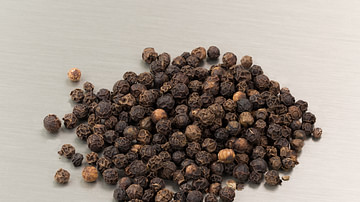
Definition
Pepper
Since antiquity, pepper has always been the most important spice in the world. It played a central role in the medicines of ancient India and China, became a critical component of Roman food, and remained central in the cuisine of medieval...

Article
The Spice Trade & the Age of Exploration
One of the major motivating factors in the European Age of Exploration was the search for direct access to the highly lucrative Eastern spice trade. In the 15th century, spices came to Europe via the Middle East land and sea routes, and spices...

Article
European Discovery & Conquest of the Spice Islands
Clove, nutmeg, and mace are native to only a handful of tiny islands in the middle of the vast Indonesian archipelago – cloves on five Maluku Islands (the Moluccas) about 1250 km (778 mi) west of New Guinea, and nutmeg on the ten Banda Islands...
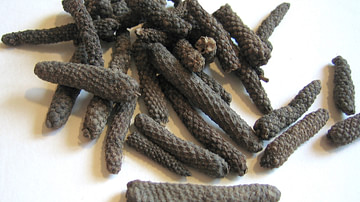
Article
Middle Eastern Power Shifts & the Trade of Pepper from East to West
Pepper has long been the king of spices and for almost 2,000 years dominated world trade. Originating in India, it was known in Greece by the 4th century BCE and was an integral part of the Roman diet by 30 BCE. It remained a force in Europe...
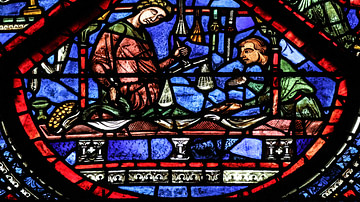
Article
Eyes on the East: Chronicles of the Indian Ocean Spice Trade
As the 15th century ended, Europeans were still mostly in the dark about the Eastern world. Early travelers like Marco Polo had given the West tidbits of information, but these accounts were too highly colored and fragmentary to provide a...
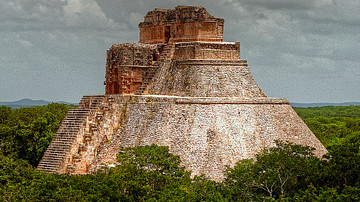
Collection
Changing Worlds: Climate & Disaster in Antiquity
Although climate change has today become a much bigger and more globalized problem than in the past, ancient peoples did have to contend with local events that severely disrupted or even ended their way of life as they knew it. A long series...
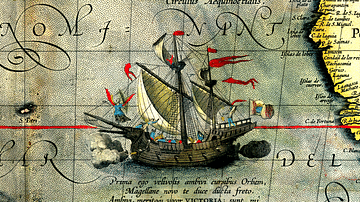
Definition
Ferdinand Magellan
Ferdinand Magellan, or Fernão de Magalhães (c. 1480-1521), was a Portuguese mariner whose expedition was the first to circumnavigate the globe in 1519-22 in the service of Spain. Magellan was killed on the voyage in what is today the Philippines...
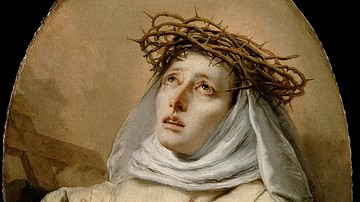
Image Gallery
A Gallery of 30 Influential Women from the Middle Ages
In this gallery, we showcase images of 30 influential women from the Middle Ages. Usually dated from c. 500 to c. 1500, this was a complex and transformative period in European history filled with political turmoil and dynamic social and...

Article
The Early History of Clove, Nutmeg, & Mace
The spices clove, nutmeg, and mace originated on only a handful of tiny islands in the Indonesian archipelago but came to have a dramatic, far-reaching impact on world trade. In antiquity, they became popular in the medicines of India and...
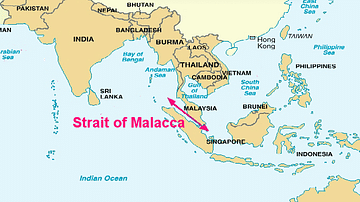
Definition
Portuguese Malacca
The Portuguese colonised Malacca (modern Melaka) on the southwest coast of the Malay peninsula from 1511 and kept it until 1641 when the Dutch took over. The port controlled the Malay Straits which lead from the Indian Ocean (the Andaman...